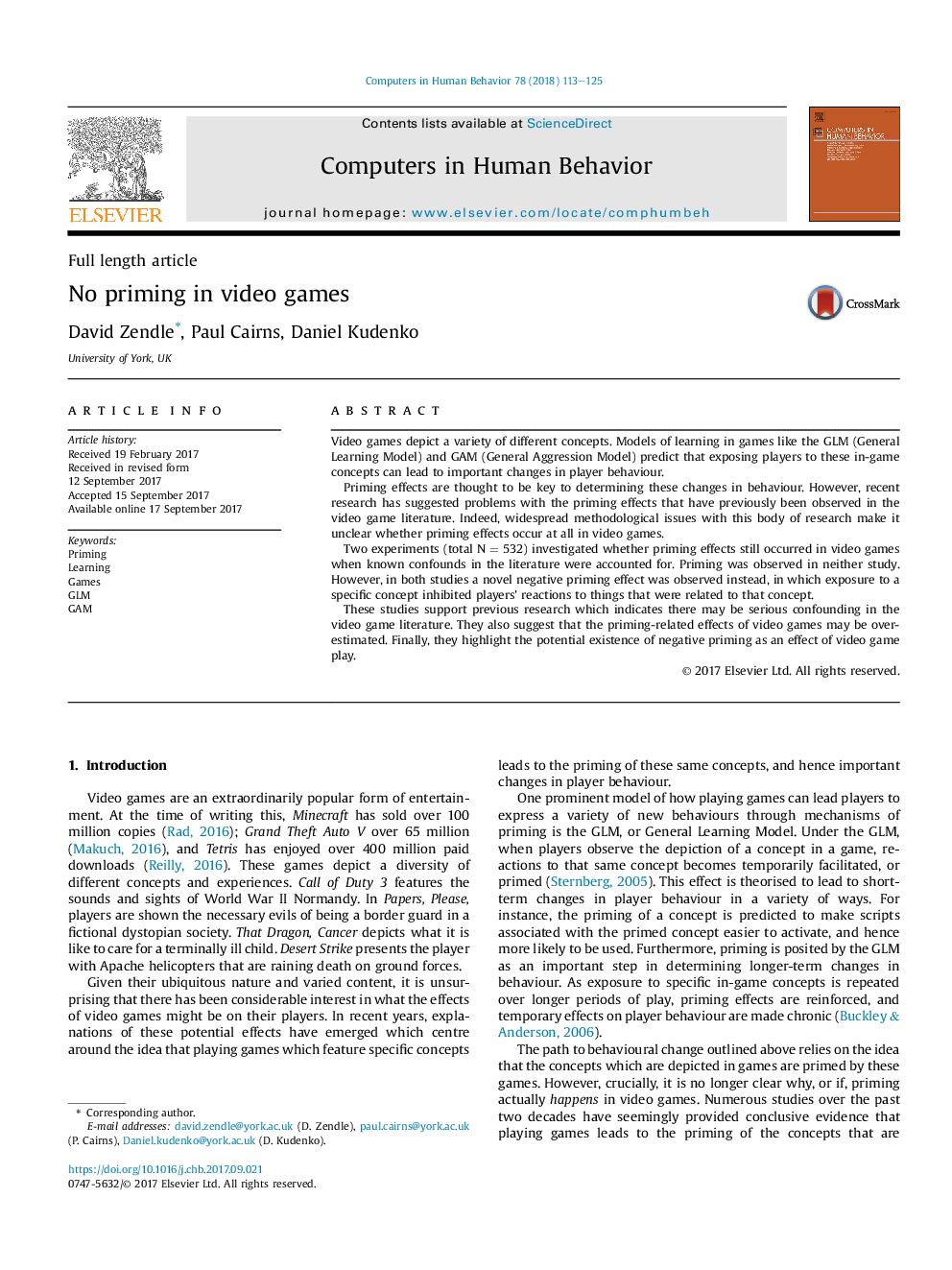| Article ID | Journal | Published Year | Pages | File Type |
|---|---|---|---|---|
| 4936994 | Computers in Human Behavior | 2018 | 13 Pages |
â¢Priming is not seen when differences in gameplay between conditions are controlled.â¢Popular models of learning in games (GAM, GLM) are challenged.â¢Negative priming inconsistently observed: Playing a game sometimes inhibits reactions to in-game concepts.
Video games depict a variety of different concepts. Models of learning in games like the GLM (General Learning Model) and GAM (General Aggression Model) predict that exposing players to these in-game concepts can lead to important changes in player behaviour.Priming effects are thought to be key to determining these changes in behaviour. However, recent research has suggested problems with the priming effects that have previously been observed in the video game literature. Indeed, widespread methodological issues with this body of research make it unclear whether priming effects occur at all in video games.Two experiments (total NÂ =Â 532) investigated whether priming effects still occurred in video games when known confounds in the literature were accounted for. Priming was observed in neither study. However, in both studies a novel negative priming effect was observed instead, in which exposure to a specific concept inhibited players' reactions to things that were related to that concept.These studies support previous research which indicates there may be serious confounding in the video game literature. They also suggest that the priming-related effects of video games may be overestimated. Finally, they highlight the potential existence of negative priming as an effect of video game play.
